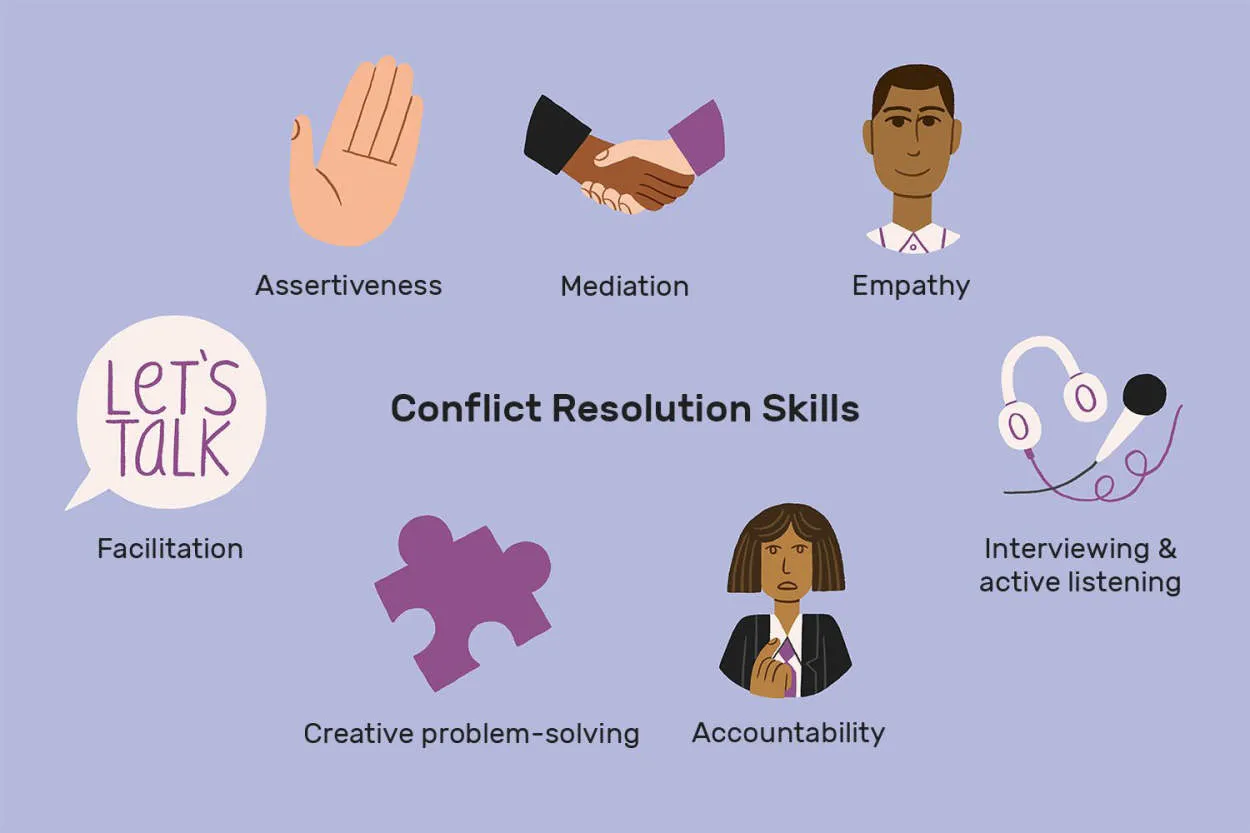Conflict resolution is a crucial skill in any workplace. With diverse personalities and perspectives, conflicts are bound to arise. This article delves into effective strategies and techniques to resolve workplace conflicts, promoting a harmonious and productive work environment.
Active Listening and Empathy
Conflict resolution in the workplace can be a challenging task that requires effective communication and understanding. One essential skill for successful conflict resolution is active listening combined with empathy.
Active listening involves fully focusing on and comprehending what the other person is saying. It requires giving undivided attention, avoiding distractions, and refraining from interrupting. By actively listening, individuals can understand the underlying issues and perspectives involved in the conflict.
Empathy, on the other hand, is the ability to understand and share the feelings of others. When resolving conflicts, it is crucial to place oneself in the shoes of the other person and try to comprehend their emotions and experiences. Empathy helps create a safe and respectful environment where both parties can openly express their concerns.
By combining active listening and empathy, individuals can effectively address workplace conflicts. Active listening ensures that all parties feel heard and understood, while empathy cultivates compassion and encourages the search for mutually beneficial solutions. These skills allow for better communication, increased collaboration, and ultimately, more successful conflict resolution.
Open and Honest Communication
Effective conflict resolution in the workplace requires open and honest communication. When conflicts arise, it is essential to create an environment where employees feel safe and comfortable expressing their concerns and opinions. Encouraging open dialogue allows for a better understanding of the issues at hand and helps to prevent misunderstandings from escalating.
To foster open communication, it is vital to establish clear channels for employees to voice their thoughts and concerns. Regular team meetings, one-on-one sessions, and suggestion boxes are effective ways to encourage employees to share their perspectives. This open dialogue also enables managers and team leaders to address conflicts promptly and appropriately.
Honesty is a crucial element in resolving conflicts. Employees should feel encouraged to express themselves truthfully and constructively. By promoting a culture of honesty, organizations can build trust among team members and enable healthy conflict resolution.
Open and honest communication also involves active listening. Giving each person involved in the conflict an opportunity to share their side of the story fosters empathy and understanding. This approach helps to identify the root causes of the conflict and find suitable solutions.
In conclusion, open and honest communication is a vital component of effective conflict resolution in the workplace. Creating a culture that values transparency and encourages employees to express themselves openly leads to better understanding, trust, and ultimately, more successful resolution of conflicts.
Seeking Win-Win Solutions
The workplace is a dynamic environment where conflicts are bound to happen. Whether it’s a disagreement between team members or a clash of personalities, conflict resolution plays a crucial role in maintaining a healthy work environment.
One effective way to resolve conflicts is by seeking win-win solutions. Instead of focusing on one-sided victories, win-win solutions aim to find mutually beneficial outcomes for all parties involved. This approach encourages collaboration, communication, and compromise.
To achieve win-win solutions, it is essential to encourage open dialogue among team members. By actively listening to each other’s concerns and perspectives, individuals can better understand the underlying causes of the conflict.
Moreover, implementing a problem-solving mindset is crucial when seeking win-win solutions. Instead of blaming others or dwelling on past mistakes, individuals should focus on finding creative and constructive ways to address the conflict.
Another important element of seeking win-win solutions is the willingness to compromise. Each party involved should be ready to give up certain aspects of their desired outcome to reach an agreement that benefits everyone.
In conclusion, conflict resolution in the workplace can be achieved through seeking win-win solutions. By fostering open dialogue, maintaining a problem-solving mindset, and being willing to compromise, conflicts can be effectively resolved, leading to a more harmonious work environment.
Conclusion
In conclusion, conflict resolution in the workplace is vital for maintaining a healthy and productive work environment. By employing effective communication, active listening, and collaborative problem-solving techniques, conflicts can be resolved in a timely and mutually beneficial manner. When conflicts are addressed promptly and constructively, it leads to increased teamwork, morale, and overall success for the organization.




